TRANSLATING - between the manifold languages of science, multiple perceptions of reality, diverse concepts
of value and different forms of memory. How can we all understand each other? How can we translate, compare, communicate and archive our ever evolving fields of knowledge? What approaches would help us build bridges
of understanding? You want to publish your PROJECT or THEME? See how it works! >> |

|
|
 |
»Research based on Community building«
Stella Veciana and Sabine Bartscherer
What skills, attitudes, behavior and inner attitudes are vital if researchers and practitioners want to research jointly in intentional communities? The so-called "pioneers of change" need besides money and time resources, specific cooperation methods in order to share their innovative applications and pragmatic experiments for a genuine sustainability with scientists.
more (German)
|
|
|
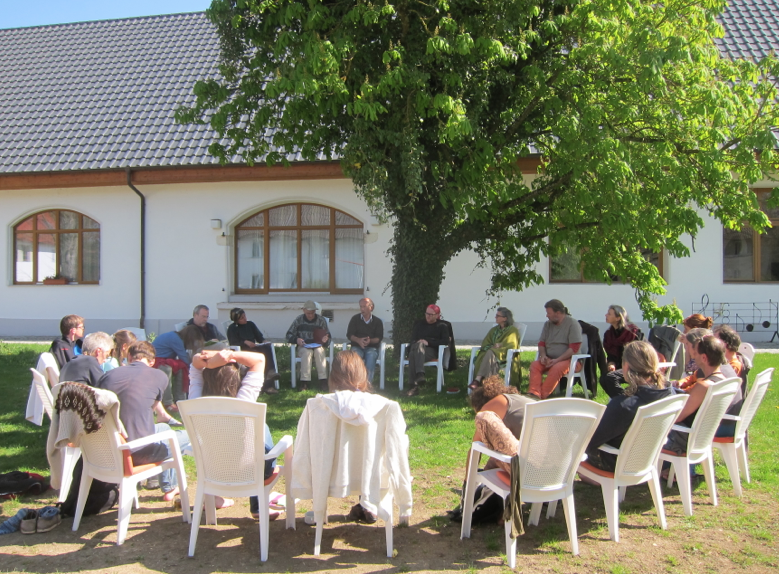
|
»Inner conflict resolution and self-empowerment as contribution for personal sustainability on the case of intentional community practices.«
Stella Veciana and Kariin Ottmar
This article aims to address the influence of personal sustainability on transition pathways in conceptual, methodological and empirical terms. It explores how three selected community-design practices foster personal sustainability competences of community members, especially for inner conflict resolution and self-empowerment. Furthermore, the community led approach to personal sustainability is explored regarding its actual and potential interactions with wide-scale systems transformation.
more
|
|
|
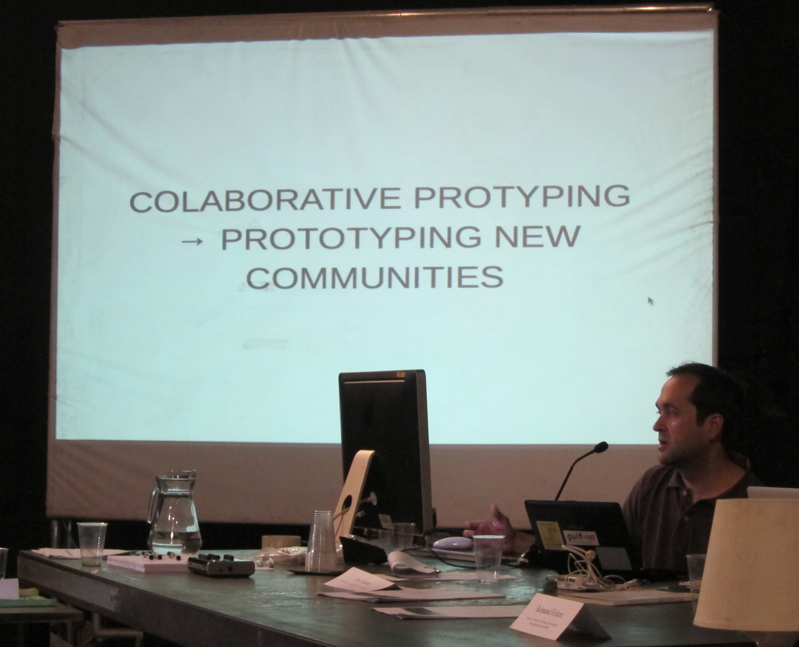
|
»On the need to close open processes.«
Swen Seebach
This article wants to critically look at research and educational processes in between the metaphysical concepts of “opening” and “closure”. During the last years the concept of the open process has moved to the forefront of research and education. Leaving research and educational processes open and mainly to itself has become fashionable and paradigmatic. From a specific (by modern ICTs inspired) perspective it looks like leaving research and educational processes open and let them by themselves create a higher fairness, as if an “invisible hand” would orchestrate and balance the different positions for knowledge creation and education. This text wants to look at the problems of such a perspective. Finally, alternative forms to combine opening and closure of such processes will be presented and the role of the artist in this balancing act will be emphasised. more
|
|
|
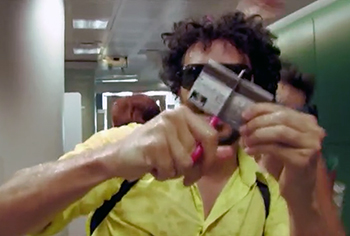
|
»Degrowth, values and the role of art in the transformation of society«
Leonídas Martín interviewed by Stella Veciana
The neoliberal values are many, but can be summarized basically in one, which is competition. Today we are all machines that compete against each other, a sort of particular personal enterprise that competes with the other to survive. Against this we want to counterpose other cultural values they can be for example; cooperation, as a fundamental value, and capacity building, or the creation of a better life, of a good life (Buena Vida) that represents something different to what it means to us today. more
|
|
|

|
»Autonomy or a possible aproximation to the colors of the Acropolis.«
Dirk Marx and Stella Veciana
The Acropolis once was painted; but does the faded color of the temple today mean it is lifeless? What colors do we want / can we see in the Acropolis of our time? Yes, we want / should live together and try to do that. The Acropolis is a "civilized" parable for an idea of life and time to the present. But we have not provided it to this day still with color again, we, the civilized. Is dealing with colors, following this analogy, the only way that allows us to life together? more
|
|
|
»Dis|tinction time: here I am -
was I there?«
Jutta Franzen
»To repeat is to behave in a certain manner, but in relation to something unique or singular which has no equal or equivalent”. [...]
The task of life is to make all these repetitions coexist in a space in which difference is distributed.«
Gilles Deleuze
(German) more |
THE THEME OF THE MONTH (Jan/Apr 2014): »The Dis|tinction time and space«.
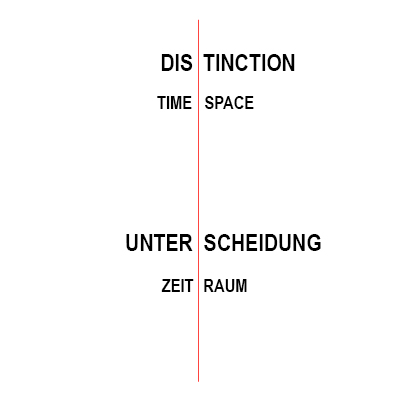
|
»Dis|tinction space: from the 3D body experience to Nano-Topologies«
Stella Veciana.
»It gives a play, which children play, if the tide comes. They build an allegedly impenetrable sand wall around itself, in order to hold the water so long like possible outside. Naturally the water seeps from downside through and sometime breaks through it the wall and floods all. Adults play a similar play. They surround themselves with an allegedly impenetrable wall from arguments, in order to hold the reality outside. But the reality oozes from downside, breaks through sometime the wall and floods us all.«
George Spencer-Brown |
|
|
|

|
»How do Artists build Collections? Cumuli – Exhibition / Archive / Storeroom«.
Stella Veciana in conversation with Herbert Distel, Katharina Karrenberg, Christin Lahr and Moira Zoitl.
How does the collection of an artist differ from the collections of museum directors and art lovers / collectors? With the exhibition Cumuli, the artist group Camelot presents artists’ different approaches to collecting: for example, the artist who collects personal mementos or unnoticed objects, who acquires the works of other artists, who assigns new value systems to the objects, or the one who collects gestures and procedures of human activity.
(German) more |
|
|
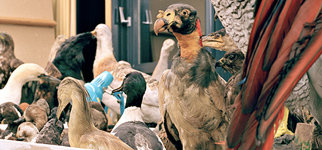
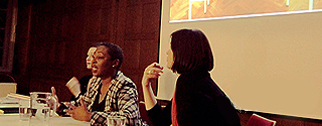
|
»Re-valuing Archives«. Collections of fieldwork as a breeding ground for the future. Stella Veciana in conversation with Richard Schütz.
What does an ethnographical museum have in common with a museum of natural history? How does the methods and procedures used to examine the ‘scientific objects’ in their collections compare. The article examines scientific objects, such as stuffed animals, which have been taken out of the context of their historical archives. It also studies how ethnological artefacts, such as weapons, are liberated from the patina of their colonial past.
The trend to re-evaluating archives is illustrated by two examples. Firstly, by introducing the research of visual artist Richard Schütz. His work not only alters the meaning of artefacts from collections through visual storytelling, but also encourage us to envision their future. Secondly, the innovative concept of the exhibition »Object Atlas« of the Weltkulturen Museum / Frankfurt is presented, where innovative research methods have enabled artists and museum staff to take on new roles in their research relationship. Both approaches show how collections can further develop their potential to pioneer new views on the problems of the 21st century. more |
|
|
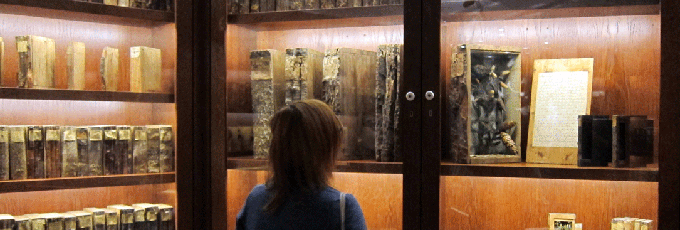
|
»Generating and exhibiting scientific objects«: From the Cabinets of Curiosity to the Research Museums. Stella Veciana.
At the documenta 13 Mark Dion puts the Schildbach Woodlibrary in a hexagonal oak cabinet presenting the research objects in a new light. By doing so he questions existing regulatory, collection and classification systems. This novel artistic-curatorial »presentation architecture« and »archiving model« is faced to a new science policy framework for Natural History Museums recently discussed in Berlin. more |
|
|
|